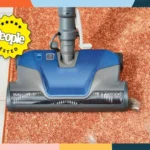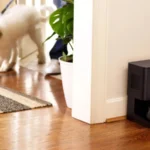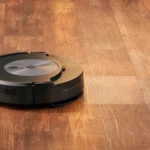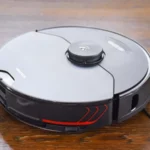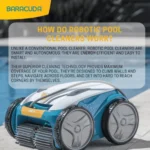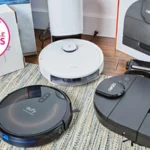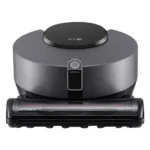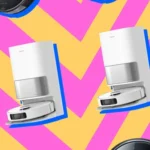Are you tired of struggling to clean up after your pets? Do you find pet hair all around your home, no matter how often you vacuum? Using the right vacuum cleaner can make all the difference, especially if it has a HEPA filter. But what is a HEPA filter and why is it important for pet hair vacuuming? In this article, we’ll explore the benefits of using a HEPA filter in your vacuum cleaner, why pet hair vacuuming is crucial for your health and the environment, and how a HEPA filter can help. We’ll also discuss how to choose the best pet hair vacuum cleaner with a HEPA filter, effective techniques for pet hair vacuuming, and maintenance of your HEPA filter. So, let’s dive into the world of pet hair vacuuming with HEPA filters!
Why this Article is Important
As pet owners, we all know that cleaning up pet hair can be a daunting task. This article aims to provide a comprehensive guide on why using a HEPA filter in your pet hair vacuum cleaner can make a significant difference. From reducing allergies to improving air quality, the benefits are immeasurable. We will also discuss how to choose the best vacuum cleaner for pet hair with a HEPA filter and features to look for, as well as maintenance and replacement of HEPA filters. Whether you’re a seasoned pet owner or new to the game, this guide will provide valuable information that you won’t want to miss. For more information on common mistakes to avoid when vacuuming pet hair, check out our article on smart vacuum pet hair mistakes.
The Benefits of Using a HEPA Filter in Your Vacuum Cleaner
Using a HEPA filter in your vacuum cleaner can provide numerous benefits that can improve the air quality in your home and reduce the risks associated with pet hair and dander. Here are some of the benefits of using a HEPA filter in your vacuum cleaner:
- Efficient filtration: HEPA filters are designed to capture microscopic particles, such as pet hair and dander, that often escape other filters. This means that the air in your home will be cleaner and healthier to breathe.
- Allergy relief: If you’re an allergy sufferer, using a vacuum cleaner with a HEPA filter can help reduce your symptoms by trapping pet allergens that can trigger allergies.
- Improved air quality: Pet hair and dander can contribute to poor indoor air quality, which can lead to respiratory problems and other health issues. Using a HEPA filter can remove these particles from the air, improving the overall air quality in your home.
- Better cleaning: HEPA filters are designed to trap even the smallest particles of dirt and debris, making them much more effective at cleaning your floors and upholstery than standard filters.
Using a HEPA filter in your vacuum cleaner is especially important if you have pets at home. Pet hair and dander can be difficult to remove, and using a vacuum cleaner without a HEPA filter can actually make the problem worse, as it can release these particles back into the air. By using a vacuum cleaner with a HEPA filter, you can ensure that your home is cleaner and healthier for both you and your pets.
If you’re in the market for a new vacuum cleaner, look for one that has a HEPA filter and other features that are specifically designed for pet hair, such as an anti-tangle brushroll, ideal suction power and smart features for pet owners. These types of vacuums are specifically designed to tackle the challenges of pet hair and dander, ensuring that your home is as clean and healthy as possible.
Common Issues with Pet Hair Vacuuming
It’s no secret that pets are notorious for shedding their hair. Whether you own a dog or cat, dealing with pet hair can be a constant struggle. While vacuum cleaners have made it easier to clean up pet hair, there are still several common issues that arise when vacuuming pet hair.
1. Pet Hair Clogs the Vacuum Cleaner
One of the most common issues when vacuuming pet hair is that it can easily clog the vacuum cleaner. Most vacuums are not designed to handle the volume of hair that pets shed, which can lead to clogs in the hose, brush roll, or filter.
2. Pet Hair is Difficult to Remove
Pet hair can be difficult to remove from carpets, rugs, and upholstery. The static charge in pet hair causes it to cling to fibers, making it harder to vacuum up. This can be particularly frustrating when you’ve spent the time and effort to vacuum a room only to realize that you’ve missed a significant portion of the hair.
3. Pet Odors Lurk in Carpet
Pet odors can be particularly stubborn, especially when they are embedded in carpets and upholstery. Traditional vacuum cleaners may pick up some of the loose hair and dirt but are not always effective at removing pet odors.
4. Pet Dander Causes Allergies
Pet dander, which is made up of tiny flakes of skin shed by pets, can cause allergies in some people. When vacuuming pet hair, it’s essential to ensure that the vacuum cleaner has a high-efficiency particulate air (HEPA) filter that can capture pet dander and other allergens.
5. Noise Pollution from Vacuum
Another common issue with pet hair vacuuming is the noise pollution from the vacuum cleaner. Loud, clunky machines can disturb pets and lead to anxious behavior.
To avoid these common issues associated with pet hair vacuuming, it’s wise to invest in a vacuum cleaner that is specifically designed for pet hair. Some recommended vacuum cleaners for pet hair include the Smart Vacuum Pet Hair which has powerful suction, HEPA filters, and specialized grooming tools.
What is a HEPA Filter?
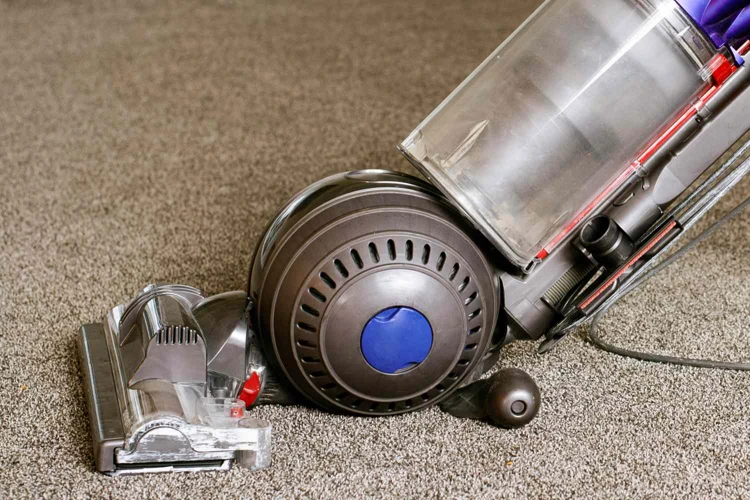
If you’re on the hunt for the perfect vacuum cleaner to combat pet hair and dander, you’ve probably come across the term “HEPA filter.” But what exactly is a HEPA filter, and why is it so important in the world of pet hair vacuuming? Well, let’s dive in and explore this crucial component in more detail. With a little bit of knowledge, you’ll be better equipped to make an informed decision and choose the best vacuum for your pet-loving home.
How it Works
HEPA filters work by trapping small particles that other filters may miss. Made of densely packed layers of fine mesh, the filter forces air through the mesh and traps harmful particles like pet dander, pollen, pet hair and dust mites. The mesh is so fine that even particles as small as 0.3 microns can’t escape.
This advanced technology makes HEPA filters crucial in vacuuming pet hair. When pet hair is floating around in the air, it can cause allergies and respiratory problems for people and pets alike. A HEPA filter captures those particles and prevents them from being inhaled.
A HEPA filter is a significant upgrade from traditional vacuum cleaner filters. Traditional filters only trap large particles but cannot capture the microscopic particles that trigger allergies and respiratory problems. On the other hand, a high-quality HEPA filter can remove up to 99.97% of particles smaller than 0.3 microns.
Here is a table showing how the HEPA filter’s fine mesh layers work to trap microscopic particles:
| Layer | Function |
|---|---|
| Pre-Filter | Captures large particles like pet hair and dust |
| Carbon Filter | Removes unpleasant odors and Gaseous pollutants |
| HEPA Filter | Captures particles as small as 0.3 microns to provide clean, breathable air |
| Post-Filter | Traps any remaining fine particles, so you get the cleanest possible air |
The HEPA filter’s fine mesh layers and advanced technology allow it to effectively capture pet hair and other harmful particles from the air. By investing in a vacuum cleaner that incorporates a HEPA filter, you can ensure the health and well-being of your family and pets while keeping your home clean and fresh.
Top Benefits
HEPA filters are a critical feature in vacuum cleaners, and they come with a number of benefits that make them worth investing in. Here are some of the top benefits of using a HEPA filter in your pet hair vacuum cleaner:
| Benefit | Description |
| Reduced Allergies | HEPA filters can trap more than 99 percent of airborne particles, such as dust, pet dander, and pollen. This reduces the amount of allergens in the air, making it easier for those with allergies to tolerate being around their pets. |
| Improved Air Quality | Since HEPA filters are so effective at capturing particles, they can help improve the air quality in your home. This is particularly important for those who have pets, who shed a lot and can create a lot of dust and debris in the air. |
| Powerful Filtration | HEPA filters are designed to capture particles as small as 0.3 microns, which is smaller than the diameter of a human hair. This means that they are extremely effective at filtering out even the smallest particles of dust, dirt, and pet hair. |
| Long Lasting | HEPA filters are also known for their durability and longevity. They can last for several years when properly maintained and cleaned, which makes them a cost-effective solution for pet owners who want to keep their homes clean and free of allergens. |
| Less Maintenance | HEPA filters require very little maintenance compared to other types of filters. They generally only need to be cleaned or replaced once or twice a year, which makes them a convenient and hassle-free choice for busy pet owners. |
These benefits make it clear that using a HEPA filter in your pet hair vacuum cleaner is an excellent choice for anyone who wants to keep their home clean and free of allergens. Not only do HEPA filters provide powerful filtration, but they are also cost-effective and require very little maintenance.
Why it Matters for Pet Hair Vacuuming
Pet hair vacuuming is an essential task for pet owners. It is not only necessary for maintaining the cleanliness of homes but also for ensuring the health and safety of everyone residing in the house. Using a vacuum cleaner with a HEPA filter is critical when dealing with pet hair. Here are some reasons why it matters for pet hair vacuuming:
| Benefits | Description |
|---|---|
| Filtration | A HEPA filter is important for pet hair vacuuming because of its excellent filtration capabilities. It can capture even the tiniest particles of pet hair and dander, which can cause allergic reactions in people. The filter prevents these allergens from being released back into the air, making it a must-have for pet owners. |
| Air Quality | A vacuum cleaner with a HEPA filter can help improve the air quality in your home. While regular vacuum cleaners may pick up the pet hair and dander, they do not filter out the harmful pollutants. A HEPA filter traps these allergens so that they do not circulate in the air, making it cleaner and fresher to breathe. |
| Reducing Allergies | Pet hair and dander can cause severe allergic reactions in people, making it difficult for them to stay in homes with animals. A vacuum cleaner with a HEPA filter can help reduce allergies by capturing and trapping pet hair and dander, preventing it from spreading in the air. |
Using a vacuum cleaner with a HEPA filter is critical when vacuuming pet hair. Its filtration capabilities, ability to improve air quality, and reduction of allergies make it an essential tool for pet owners.
Why Pet Hair Vacuuming is Important
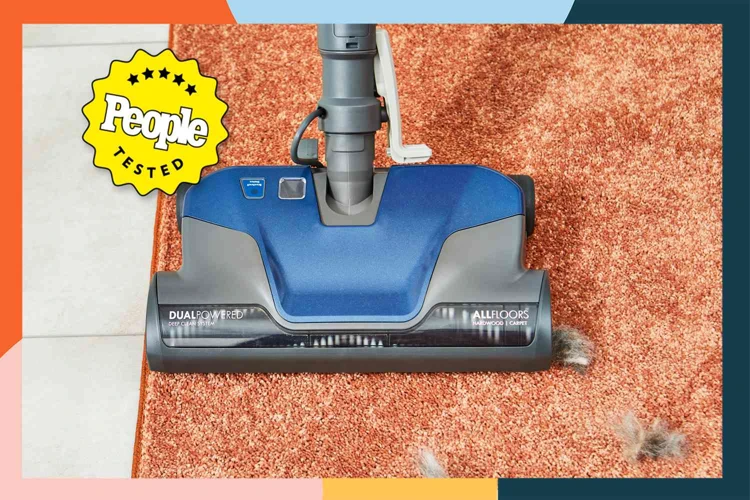
Pet hair vacuuming is crucial for maintaining a clean and healthy home environment. Failing to address pet hair can lead to a range of issues, from allergies to unpleasant odors. Healthwise, pet hair can trigger respiratory issues and contribute to poor air quality. Environmentally, pet hair can affect the efficiency of your HVAC system and contribute to higher energy bills. And let’s not forget about aesthetics—nothing ruins the look of a space like clumps of pet hair scattered about. In this section, we’ll explore why pet hair vacuuming is so important and the implications of neglecting pet hair removal.
Health Reasons
Pet hair vacuuming is not only a matter of aesthetics, but it also plays an imperative role in maintaining good health. If pet hairs are left unattended, they start accumulating and become a breeding ground for allergens, dust mites, and other harmful particles. In this section, we will explore some of the health reasons why pet hair vacuuming is important.
1. Allergies: One of the major health concerns related to pet hair accumulation is allergies. Exposure to pet hair, fur, or dander can trigger allergic reactions in some people. Symptoms may include sneezing, watery eyes, runny nose, and skin rashes. Pet hair can also aggravate existing allergies, causing further discomfort. Hepa filters are essential in capturing these allergens during the vacuuming process, reducing the chances of allergies.
2. Respiratory Issues: Pet hair and dander can also cause severe respiratory issues, particularly for people with pre-existing conditions such as asthma or chronic obstructive pulmonary disease (COPD). Vacuuming with a pet hair vacuum cleaner that has a HEPA filter is one of the best ways to ensure that the air quality in your home remains clean by removing harmful particles that can cause respiratory issues.
3. Skin Irritations: When pet hair and dander accumulate, more than just allergies can ensue, skin irritations can crop up as well. It can cause itchiness, redness, and hives on the skin. Disposing of these pollutants, i.e., pet hair accumulation, from household surfaces can prevent the reoccurrence of these adverse conditions.
4. Infestations: If pet hair is not cleaned regularly and allowed to accumulate, it can attract pests like fleas and ticks, which can lead to infestation. If someone is allergic to flea bites, it can lead to rashes and other skin irritations. Pet hair vacuum cleaners with HEPA filters leave little room for pests and their infestations to thrive by capturing and trapping these annoying creatures.
By regularly vacuuming pet hairs from surfaces using pet hair vacuum cleaners with HEPA filters, you can decrease the risk of allergies, respiratory issues, and other health concerns. It is a small price to pay for good health and well-being.
Environmental Concerns
Pet hair vacuuming doesn’t only affect our health and aesthetics but also has an impact on the environment. Here are some environmental concerns to consider when it comes to effectively managing pet hair.
- Waste Management: Pet hair vacuuming activity generates a significant amount of waste materials, including pet hair and vacuum bags, that need to be properly disposed of or recycled. Adopting a vacuum cleaner with a featured HEPA filter not only reduces the amount of waste produced but also ensures that unwanted pet hair is trapped in the filter and doesn’t release back into the environment.
- Energy Consumption: The amount of energy used by a vacuum cleaner can have a significant impact on our environment. Using a vacuum cleaner with a HEPA filter, which requires less energy to operate, can significantly reduce our carbon footprint and environmental impact. This is because the HEPA filter doesn’t require the vacuum cleaner to work harder than normal, leading to lower energy consumption rates.
- Indoor Air Quality: Pet hair vacuuming without a HEPA filter can lead to a buildup of dust and debris in our homes, leading to poor indoor air quality. Poor indoor air quality can lead to health problems such as asthma and allergies, making it essential to embrace a pet hair vacuuming process that includes the use of a HEPA filter. A HEPA filter traps harmful particles like pet dander, dust, and pollen, leading to improved air quality in your home.
It’s important to consider environmental sustainability when choosing products or services that involve pet hair vacuuming, especially with our increased awareness of climate change and green-living techniques. By adopting a pet vacuum cleaner with a HEPA filter, you’re not only improving your health and living space but also promoting a safer and more sustainable environment.
Aesthetic Aspects
Your home is not only a place of comfort, but also a reflection of your personality and style. As a pet owner, you want to create an environment that is both aesthetically pleasing and clean. Pet hair can be a major hindrance to achieving this goal, as it can quickly accumulate on your furniture and floors, making your home unsightly.
However, with the help of a HEPA filter-equipped pet hair vacuum cleaner, you can maintain a clean and attractive home while enjoying the company of your furry friend.
Aesthetics play an important role when it comes to the cleanliness of your home. Pet hair can cling to curtains, bedding, and furniture, making them appear dirty and unkempt. This can cause embarrassment when guests come over, and can also affect your mood and overall mental health. By using a pet hair vacuum cleaner with a HEPA filter, you can easily and effectively remove pet hair from every surface in your home.
Aesthetics are not just about appearances, they can also affect your physical health. Pet hair often contains allergens that can cause symptoms ranging from itching and sneezing to more severe reactions. A HEPA filter captures these allergens, preventing them from circulating in your home and significantly reducing the risk of allergic reactions.
To best illustrate the impact of aesthetic aspects of a pet hair-free home, take a look at the table below:
| Benefits of a Clean Home | Benefits of Using a Pet Hair Vacuum Cleaner with a HEPA Filter |
|---|---|
| Improved mood and mental health | Effective removal of pet hair from all surfaces |
| Reduced risk of allergies | Prevention of allergens from circulating in your home |
| Decreased embarrassment when guests come over | Enhanced aesthetics of your home |
Maintaining a clean and aesthetically pleasing home is important not only for your own wellbeing, but also for the impression it makes on visitors. By using a HEPA filter-equipped vacuum cleaner specially designed for pet hair, you can easily achieve this goal, while also enjoying the company of your furry friend.
How a HEPA Filter Helps in Pet Hair Vacuuming
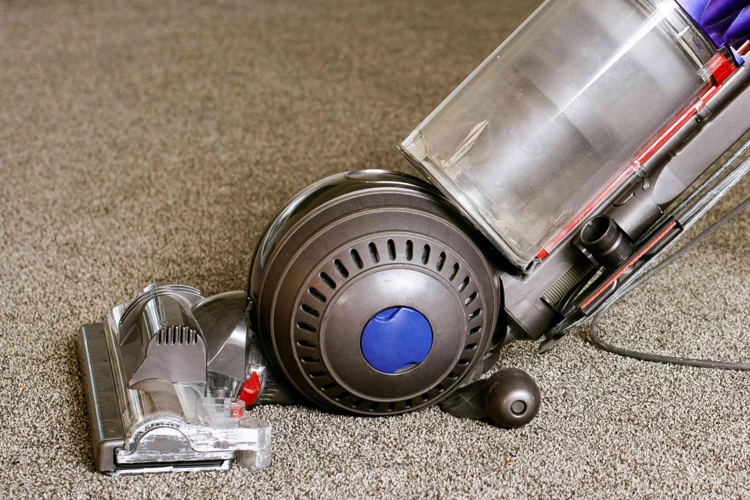
For pet owners, keeping our homes clean and free of pet hair can be a major challenge – especially for those who suffer from allergies. Pet hair and dander can cause allergic reactions and poor air quality, which can lead to health issues over time. This is where a HEPA filter comes into play. Not only does it capture tiny particles, including pet hair and dander, but it also helps to reduce allergens in the air. In this section, we’ll explore how a HEPA filter can make a significant difference in the effectiveness of your pet hair vacuuming efforts.
Powerful Filtration
When it comes to pet hair vacuum cleaners, it’s crucial to have a filtration system that effectively captures allergens and contaminants. A HEPA filter provides powerful filtration capabilities that make it stand out from other types of filters.
How does it work?
HEPA stands for High-Efficiency Particulate Air, and a HEPA filter is constructed with fine mesh that traps microscopic particles, including pet dander and dust mites. The mesh consists of randomly arranged fibers that are typically made of fiberglass.
The benefits of HEPA filtration
One of the main benefits of a HEPA filter is its ability to improve indoor air quality. As pet hair is vacuumed up, it can stir up dust and other allergens that can trigger allergies and breathing issues. A HEPA filter captures those particles and keeps them trapped inside the filter, preventing them from being released back into the air.
With the greater filtration ability of HEPA filters, pet owners can clean and breathe easier because the filters can capture more pet hair, dander, and other debris.
Comparing HEPA filters to other types of filters
There are other types of filters available on the market, such as foam or cloth filters, that can capture larger dust particles. However, they often fail to effectively trap smaller particles that can trigger allergies and asthma.
Another type of filter is the carbon filter, which can effectively capture odors. However, a carbon filter doesn’t provide the same level of particle capture that a HEPA filter does.
Here’s a comparison between HEPA filters and other types of filters:
| Filter Type | Particle Size Captured |
| — | — |
| HEPA | 0.3 microns or larger |
| Foam/Cloth | Larger dust particles |
| Carbon | Odors and large particles |
Why is HEPA filtration important for pet hair vacuum cleaners?
By using a vacuum cleaner with a HEPA filter, pet owners can significantly reduce the amount of allergens in their home. With a high-efficiency filter like a HEPA, pet hair and other allergens can be captured and trapped inside the filter, preventing them from spreading throughout the home.
Investing in a pet hair vacuum cleaner with a HEPA filter can make a significant difference in improving the air quality and health of pet owners and their families.
Reducing Allergies
HEPA filters are commonly known for their ability to trap small particles such as pet hair, dust, and debris. But did you know that they can also help reduce allergies? Let’s take a closer look at how HEPA filters can improve allergy symptoms.
Allergies are the body’s immune response to a foreign substance, such as pet dander or pollen. When these particles enter the body, they can cause an allergic reaction, leading to symptoms such as sneezing, runny nose, and itchy eyes. One way to reduce the number of allergens in the air is by using a vacuum cleaner with a HEPA filter.
How does a HEPA filter reduce allergies?
HEPA filters are designed to trap small particles, such as pet dander and dust mites, that can trigger allergies. They work by forcing air through a fine mesh that traps these small particles and prevents them from being released back into the air. This means that when you vacuum with a HEPA filter, you’re not just removing pet hair and debris, you’re also removing small particles that can cause allergies.
What are the benefits of using a HEPA filter for allergies?
Using a vacuum cleaner with a HEPA filter can have several benefits for people with allergies:
| Benefits of Using a HEPA Filter for Allergies |
|---|
| Reduces allergens in the air |
| Improves air quality |
| Reduces allergy symptoms, such as sneezing and itchy eyes |
| Helps to prevent asthma attacks |
What other measures can you take to reduce allergies?
While using a vacuum cleaner with a HEPA filter can help reduce allergies, there are other measures you can take to further improve your indoor air quality:
– Use an air purifier with a HEPA filter to further remove allergens from the air.
– Dust and vacuum regularly to keep allergens at bay.
– Use hypoallergenic bedding to reduce exposure to dust mites.
– Bathe your pets regularly to reduce pet dander.
– Keep windows and doors closed during high pollen days.
Conclusion
HEPA filters can be a valuable tool in reducing allergies and improving indoor air quality. By trapping small particles that can trigger allergies, a vacuum cleaner with a HEPA filter can help reduce allergy symptoms, improve air quality, and prevent asthma attacks. To further improve your indoor air quality, consider using an air purifier with a HEPA filter and taking measures to reduce your exposure to allergens.
Improving Air Quality
When it comes to pet hair vacuuming, not only do you want the hair gone, but you also want to improve the air quality in your home. This is where a HEPA filter is especially important. A HEPA filter is capable of capturing microscopic particles that other filters can’t, improving the air quality in your home significantly. Let’s take a closer look at how using a vacuum cleaner with a HEPA filter can improve the air quality in your home.
1. Trapping Allergens
Pet hair and dander can lead to allergies, causing sneezing, coughing, and breathing difficulties in certain people. The HEPA filter in a vacuum cleaner can help trap these allergens, preventing them from being released back into the air. This is especially helpful for those with allergies or asthma as it can reduce the number of allergens people come into contact with, making it easier to breathe and avoid allergic reactions.
2. Eliminating Pet Odors
Pets can be a great addition to your family, but their odor can be an issue. Thankfully, HEPA filters are capable of trapping not only pet hair and dander, but also odors. This means that when you vacuum with a HEPA filter, you are effectively eliminating any unwanted pet odors that may linger in your home.
3. Reducing Respiratory Issues
In addition to allergies, pet hair and dander can contribute to respiratory issues, such as bronchitis and pneumonia. By using a vacuum cleaner with a HEPA filter, you can reduce the number of particles in the air that could contribute to respiratory problems. This is especially important if you or someone in your family suffers from respiratory issues, as the cleaner air can help alleviate symptoms.
4. Preventing the Spread of Microorganisms
Pet hair and dander can hold microorganisms such as bacteria, viruses, and fungi. When these particles are spread through the air, they can contribute to the spread of illness. However, a HEPA filter can help trap these microorganisms in the vacuum cleaner, preventing them from being released back into your home’s air.
Using a vacuum cleaner with a HEPA filter can significantly improve the air quality in your home. It can trap allergens, eliminate odors, reduce respiratory issues, and prevent the spread of microorganisms. So, investing in a pet hair vacuum cleaner equipped with a HEPA filter can be a great way to ensure that both you and your pets can breathe easy in a clean and healthy environment.
Choosing the Best Vacuum Cleaner for Pet Hair
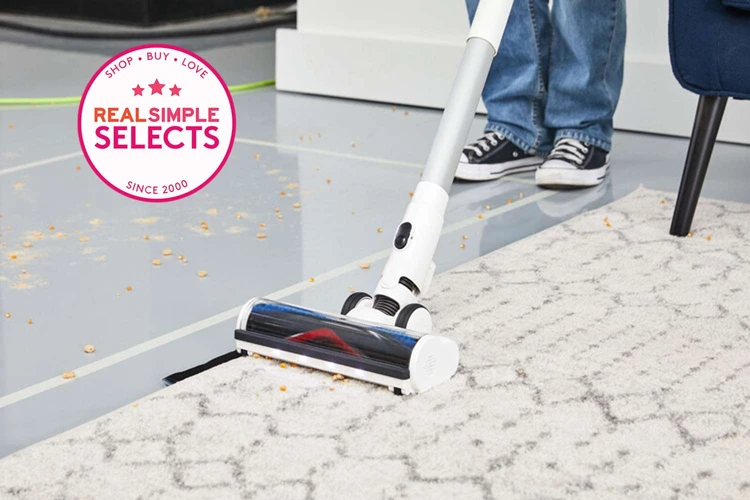
When it comes to tackling pet hair, not all vacuum cleaners are created equal. Choosing the perfect vacuum cleaner for pet hair can be challenging, with various factors to consider such as suction power, filter type, and cleaning efficiency. But fear not, as we are here to guide you through the process. In this section, we will discuss the key features to look for when selecting a vacuum cleaner specifically designed to handle pet hair. So grab your notebook and let’s dive in!
Suction Power
When it comes to choosing the best vacuum cleaner for pet hair, suction power is a critical factor to consider. The suction power of a vacuum determines how effectively it can pick up dirt, debris, and hair from your floors and surfaces.
To help you choose the best vacuum cleaner for pet hair suction, let’s take a look at some key factors that affect suction power, along with how to evaluate them.
| Factors | What to Look For | Why It Matters |
|---|---|---|
| Motor Power | Wattage or Amps | The more powerful the motor, the stronger the suction power and the better vacuum performance for pet hair. |
| Filtration System | High-Performance HEPA filter system | An efficient filtration system ensures suction power is maintained even as the vacuum fills up with hair and debris. |
| Cleaning Head | A motorized and/or adjustable cleaning head | A motorized cleaning head picks up pet hair more effectively while adjustable heads ensure that it can be used to clean different surfaces such as carpets, hardwood floors and furniture |
| Dirt Canister and Hose Width | Large capacity dirt canister and wider diameter hose attachments | A larger dirt canister means longer cleaning time without having to empty it while a wider diameter hose attachment provides greater suction power and can pick up larger debris and pet hair. |
All these factors determine the suction power of a vacuum cleaner. Investing in a vacuum cleaner with high suction power ensures that pet hair is thoroughly removed from your surfaces, carpets and furniture, leaving your home clean and allergen-free.
Filter Type
When it comes to choosing a pet hair vacuum cleaner with a HEPA filter, it’s important to pay attention to the type of filter it uses. There are several filter types available, but not all of them are created equal.
Air Filters: These are the most common filters found in vacuum cleaners. They work by trapping dirt and dust particles as air flows through the vacuum cleaner. While they may be effective at capturing larger debris, they are not very efficient at capturing smaller particles like pet dander.
Pre-Motor Filters: These filters protect the motor from dust and debris. They are usually made of foam or felt and are washable, but they do not effectively capture pet hair or dander.
Post-Motor Filters: These filters capture the finer particles that may have escaped the air filter. They are usually made of paper or cloth and can be either disposable or washable.
HEPA Filters: High Efficiency Particulate Air (HEPA) filters are the gold standard in air filtration. They are capable of capturing 99.97% of particles as small as 0.3 microns, including pet hair, dander, and other allergens. HEPA filters are essential for those suffering from allergies or asthma.
Carbon Filters: These filters contain activated carbon that can absorb odors and gases. They are often used in conjunction with other types of filters to improve the air quality in a home.
It’s important to note that not all vacuum cleaners labeled as “HEPA” actually use true HEPA filters. Look for vacuum cleaners with the “True HEPA” label to ensure you are getting the highest level of filtration.
When choosing a vacuum cleaner with a HEPA filter, pay attention to the number of filters it has. The more filters a vacuum cleaner has, the more effective it will be at capturing pet hair and other allergens.
In addition to filter type, consider the size and accessibility of the filter. Some vacuum cleaners have filters that are difficult to access or require complicated disassembly to replace. Look for vacuum cleaners with easy-to-access filters for convenient maintenance.
Remember, a vacuum cleaner with a HEPA filter is only effective if the filter is properly maintained and replaced when necessary. Regularly cleaning or replacing the filter will ensure your vacuum cleaner is running efficiently and capturing as many pet hair and allergen particles as possible.
Cleaning Efficiency
When it comes to pet hair vacuum cleaners, cleaning efficiency should be at the top of your list of considerations. You want a vacuum that can efficiently clean pet hair from all surfaces of your home. Here are some factors that can affect the cleaning efficiency of a vacuum cleaner:
- Suction power: Look for a vacuum cleaner with strong suction power that can easily pull up pet hair from carpets, rugs, and furniture. Consider the power rating of the motor and the strength of the airflow.
- Filter type: HEPA filters are known for their high efficiency in capturing even the smallest particles. Make sure your vacuum cleaner has a HEPA filter to ensure efficient pet hair removal as well as cleaner air in your home.
- Brushroll: A vacuum cleaner equipped with a brushroll helps agitate the fibers of carpets and rugs, loosening pet hair and making it easier to suction up.
- Nozzle design: A vacuum cleaner with the right nozzle design can make all the difference in cleaning efficiency. Look for a nozzle that can easily reach tight spaces and corners where pet hair often accumulates.
Keeping these factors in mind when selecting a pet hair vacuum cleaner will help ensure you choose the one that provides optimal cleaning efficiency. With a powerful and efficient vacuum cleaner, you can easily remove pet hair from all surfaces of your home and enjoy a cleaner, healthier living space.
Features to Look for in a Pet Hair Vacuum Cleaner with a HEPA Filter
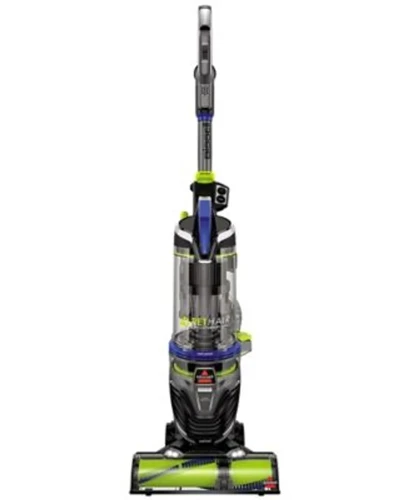
When it comes to choosing the best pet hair vacuum cleaner with a HEPA filter, there are a number of key features you should keep in mind. These features will not only ensure that the vacuum cleaner is effective at removing pet hair and other particles from your floors and furniture, but will also help to keep the air in your home clean and fresh. So, before you make your purchase, take a look at these important factors to consider.
Grooming Tools
When it comes to choosing the best vacuum cleaner for pet hair with a HEPA filter, grooming tools are an important feature to consider. These tools help to loosen and collect pet hair from upholstery, carpets, and other surfaces. Let’s take a closer look at some of the top grooming tools to look for in your next vacuum cleaner.
| Grooming Tool | Description | Benefits |
|---|---|---|
| Pet Hair Brush | A specialized brush with bristles that are designed to capture and remove pet hair from upholstery and carpets. | Effective at removing pet hair for a more thorough cleaning. |
| Crevices Tool | A narrow tool that can fit into small crevices and tight spaces to collect pet hair where it can be easily overlooked. | Helps to ensure that pet hair is thoroughly removed in hard-to-reach areas. |
| Upholstery Tool | A tool with a brush head that can be used to clean pet hair and debris from furniture and other upholstery. | Makes it easy to clean pet hair from furniture and other upholstered surfaces. |
| Turbo Brush | A motorized brush that is particularly effective at removing pet hair from stairs and upholstery. | Can be a more powerful and effective option for collecting pet hair on stairs and furniture. |
| Hard Floor Tool | A brush or tool designed to tackle pet hair and debris on hard surfaces like wood, tile, and laminate. | Ensures that pet hair is thoroughly removed from hard surfaces without causing scratches or damage to the floor. |
Choosing a vacuum cleaner with grooming tools that are appropriate for your needs can be a game-changer when it comes to managing pet hair in your home. Consider which tools will be most effective for the specific surfaces in your home, whether it be stairs, furniture, or hard floors. Additionally, think about how easily the tools can be attached and detached from the vacuum to make the cleaning process as smooth and stress-free as possible.
Adjustable Height Settings
One important feature to look for in a pet hair vacuum cleaner with a HEPA filter is adjustable height settings. This feature comes in handy when dealing with different flooring surfaces, such as carpets, hardwood floors, and tiles. With adjustable height settings, you can easily transition from one floor type to another without losing suction power.
Benefits of Adjustable Height Settings:
- Efficient Cleaning: Adjustable height settings ensure that the vacuum cleaner is always in the optimal position to pick up pet hair and other debris. This means that you won’t have to go over the same spot repeatedly to get all the dirt out.
- Protection of Floor Surfaces: Some flooring materials, such as hardwood or delicate carpets, require special care to avoid damage. Adjustable height settings help to protect these surfaces by keeping the vacuum cleaner’s brush roll at an optimal height, preventing any damage or scratching.
- Customizable Settings: With adjustable height settings, you can easily customize your vacuum cleaner to your specific needs. Whether you have multiple pets or different flooring types, you can adjust the settings to achieve the desired level of cleaning power.
Factors to Consider:
When looking for a pet hair vacuum cleaner with adjustable height settings, consider the following factors:
- Suction Power: Make sure the vacuum cleaner has enough suction power to effectively clean different floor types, especially if you have a lot of pet hair to deal with.
- Flexibility: Look for a vacuum cleaner that can easily adjust to different floor types with minimal effort. This will save you time and energy when vacuuming.
- Quality: Choose a vacuum cleaner with adjustable height settings made from durable materials that can withstand the wear and tear of daily use.
Adjustable height settings are a crucial feature to consider when shopping for a pet hair vacuum cleaner with a HEPA filter. By providing efficient cleaning, protecting floor surfaces, and customizable settings, this feature ensures that your vacuum cleaner is always ready to tackle any pet hair mess.
Dirt Canister Capacity
When it comes to choosing a pet hair vacuum cleaner with a HEPA filter, one important consideration is the size of its dirt canister: the container that holds all the debris accumulated during cleaning. The greater the capacity, the less frequently you’ll need to empty the canister, making the cleaning process much more efficient and convenient.
Different models of vacuum cleaners come with varying capacities for their dirt canisters. Small capacities may require frequent emptying, leading to more interruptions in the cleaning process, while large capacities may make vacuum cleaners too heavy and bulky to maneuver. You need to find a balance between effective cleaning and easy maneuverability.
Here is a table that will help you compare the capacities of various pet hair vacuum cleaners with HEPA filters:
| Brand | Model | Dirt Canister Capacity (in liters) |
|---|---|---|
| Dyson | Cyclone V10 Absolute | 0.76 |
| Shark | NV752 TruePet | 1.5 |
| Bissell | Pet Hair Eraser 1650A | 1.5 |
| HOOVER | React Whole Home Cordless Vacuum BH53210 | 0.62 |
Make sure to choose a dirt canister capacity that suits your cleaning needs and home size. Don’t compromise on capacity as it plays a significant role in efficient cleaning.
How to Effectively Vacuum Pet Hair with a HEPA Filter
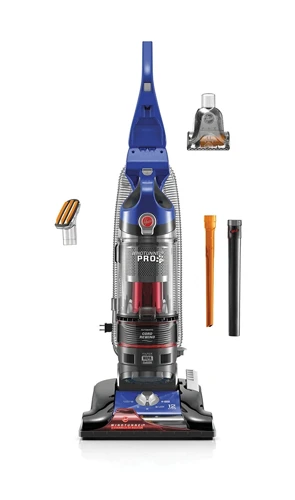
Now that you have your HEPA filter-equipped pet hair vacuum cleaner, it’s time to put it to use! But before you start vacuuming away, it’s important to understand the best practices for effectively tackling pet hair. With the right techniques and tools, you can ensure that your vacuuming efforts are not in vain. In this section, we’ll cover everything from the frequency of use to the most effective techniques for getting rid of pesky pet hair. So, grab your vacuum cleaner, and let’s get started!
Frequency of Use
Regular cleaning habits are essential for maintaining a clean home, free of pet hair and dander. It’s easy to get behind on cleaning, but for households with pets, regular cleaning is absolutely necessary to maintain a healthy and comfortable living environment. When it comes to vacuuming pet hair, frequency of use is important to ensure that your home remains clean and comfortable for both pets and pet owners.
Here are some recommendations on how often you should vacuum for pet hair:
- For homes with shedding pets, it’s recommended to vacuum at least once a day.
- If you have pets that don’t shed as much, you can decrease vacuuming frequency to once a week.
- For households with allergy sufferers, it’s recommended to use a HEPA filter vacuum and increase your vacuuming frequency to at least 2-3 times a week.
Keeping up with vacuuming pet hair regularly can help maintain a cleaner living environment for both pets and people. Not only does it keep hair and dander from accumulating on floors and furniture, it can also help maintain optimal air quality inside the home. Vacuuming is especially important during seasons where pets shed more, like summer and late fall.
Remember that frequent vacuuming is key to keeping pet hair under control and preventing it from becoming a major cleaning issue. Use a pet hair vacuum with a HEPA filter to efficiently remove hair, dander, and other small particles from your floors and furniture. With regular use, your vacuum cleaner can help maintain a comfortable and healthy living space for both you and your furry friends.
Effective Techniques
When it comes to effectively vacuuming pet hair with a HEPA filter, there are a few techniques that are especially effective. Let’s take a closer look at some of these techniques below:
| Technique | Description |
|---|---|
| Use the Right Attachment | Using the right attachment can be the difference between a clean floor and a floor that still has pet hair on it. The best attachments for cleaning pet hair are typically the ones with a spinning brush roll, which is designed to sweep pet hair and other debris off of carpet pile. |
| Vacuum Against the Grain | When vacuuming carpet or upholstery, it’s important to vacuum against the grain of the fabric or fibers. This helps to loosen up any pet hair that may be trapped deep in the carpet pile and makes it easier for your vacuum’s suction to capture it. |
| Use a Slow and Steady Motion | Rather than quickly moving the vacuum back and forth over the same area, use a slow and steady motion, allowing the brush roll or suction to effectively pick up and remove pet hair. This technique is especially effective on hard floors or tile surfaces. |
| Repeat as Necessary | If you have a particularly hairy pet or have gone a while without vacuuming, you may need to repeat the process multiple times. Be patient and persistent, and don’t be afraid to go over the same area several times to ensure all pet hair has been adequately removed. |
| Clean Filters Regularly | No matter how effective your vacuuming techniques may be, if your HEPA filter is clogged with pet hair and dander, your vacuum will lose suction power and will be less effective at removing hair. Regularly cleaning or replacing your filter is essential for optimal performance. |
By following these simple techniques and incorporating a vacuum cleaner with a HEPA filter, you can enjoy a beautifully clean home that’s free of pet hair and other allergens. Remember, it’s important to vacuum frequently, especially if you or anyone in your home has allergies or respiratory issues. With these effective techniques, you can ensure that your home is as clean and healthy as possible.
Best Practices
When it comes to effectively vacuuming pet hair with a HEPA filter, there are some best practices that can help you get the most out of your vacuum cleaner. These include:
| 1. Use the Right Attachment: | Make sure you use the appropriate attachment for the surface you are vacuuming, such as an upholstery tool for furniture or a crevice tool for tight spaces. This will help you remove more pet hair and dirt. |
| 2. Vacuum Frequently: | Vacuuming frequently is important to prevent pet hair and dander from building up in your home. Aim to vacuum at least once a week, or more often if you have pets that shed heavily. |
| 3. Vacuum in Multiple Directions: | Vacuuming in multiple directions, such as back and forth and side to side, can help loosen and remove pet hair that may be stuck in carpet fibers. |
| 4. Empty the Canister Regularly: | Make sure to empty the dirt canister on your vacuum cleaner regularly to maintain optimal suction and prevent debris from clogging the filter. |
| 5. Check and Replace the Filter: | Check your HEPA filter regularly to ensure it is clean and functioning properly. Replace the filter as recommended by the manufacturer to maintain the highest level of filtration. |
| 6. Groom Your Pet: | Regularly brushing and grooming your pet can help reduce shedding and prevent excess hair from ending up on your floors and furniture. |
By following these best practices, you can ensure that your pet hair vacuum cleaner with a HEPA filter is operating at its best and that you are keeping your home free from pet hair and dander. Remember to always check the manufacturer’s instructions for specific care and maintenance tips for your specific vacuum cleaner model.
Maintenance and Replacement of HEPA Filters
As every pet owner knows, dealing with shedding can be a constant battle. Fortunately, a high-quality vacuum cleaner with a HEPA filter can make all the difference in your ability to manage pet hair and dander. However, like any other tool or device, your vacuum cleaner and its HEPA filter require regular maintenance in order to function properly. In this section, we will explore the important topic of maintaining and replacing HEPA filters so that you can keep your vacuum in tip-top shape and ensure optimal performance.
How to Properly Maintain Your Filter
Maintaining Your HEPA filter is essential to maximize its performance and ensure that your vacuum cleaner is working efficiently. Here are some tips on how to properly maintain your filter:
| Step | Description | Frequency |
|---|---|---|
| Step 1 | Remove the filter from the vacuum cleaner | Once a month |
| Step 2 | Brush off any loose dust or hair from the filter | Once a week |
| Step 3 | Rinse the filter in warm water | Once a month |
| Step 4 | Allow the filter to dry completely before reinstalling it | Once every 3 months |
| Step 5 | Store the filter in a clean, dry place | As needed |
By following these steps regularly, you can ensure that your HEPA filter lasts as long as possible and does not become clogged with debris. A clogged filter will reduce suction power, decrease the lifespan of your vacuum cleaner, and release dust and allergens back into the air.
Pro Tip: It is best to replace your HEPA filter every 6 months to a year, depending on usage. Make sure to use only manufacturer-recommended replacement filters to maintain the quality and efficiency of your vacuum cleaner.
When to Replace Your Filter
It is important to replace your HEPA filter on a regular basis to maintain its effectiveness. Over time, the filter can become clogged with pet hair and dander, which can reduce its ability to trap pollutants and allergens.
So how often should you replace your HEPA filter?
There is no exact timeline for filter replacement, as it depends on factors such as usage frequency, type of vacuum cleaner, and the size of your home.
However, a general rule of thumb is to replace your filter every 6-12 months for optimal performance.
Here are some signs that will help you determine when it’s time to replace your HEPA filter:
| Signs it’s time to replace your HEPA filter | What it means |
|---|---|
| Reduced suction power | A clogged filter can limit air flow, which can reduce suction power and make vacuuming less efficient. |
| Increase in dust and pet hair | If you notice an increase in dust and pet hair buildup around your home, it may be a sign that your filter is not trapping allergens effectively. |
| Visible damage or wear and tear | If your filter is visibly damaged or torn, it is important to replace it immediately to ensure it is trapping allergens and pollutants effectively. |
| Bad odor | If there is a bad or musty odor coming from your vacuum cleaner, it could be a sign that your filter needs to be replaced. |
Remember, regular maintenance and filter replacement is essential for maintaining effective suction power and the quality of air in your home. By following these guidelines, you can ensure that your pet hair vacuum cleaner with a HEPA filter is performing efficiently and effectively.
Conclusion
In conclusion, having a pet hair vacuum cleaner with a HEPA filter is crucial for the health of both you and your furry friend. Not only does it effectively remove pet hair and dander, but it also improves the air quality in your home. This is particularly important for people who suffer from allergies or asthma.
When choosing a vacuum cleaner, look for one with strong suction power and a HEPA filter. Make sure to also consider the cleaning efficiency and dirt canister capacity. Additionally, grooming tools and adjustable height settings can make a big difference in tackling pet hair.
To effectively vacuum pet hair, it’s important to use it regularly and employ effective techniques such as overlapping strokes and changing directions frequently. Following best practices such as emptying the dirt canister after each use will also extend the life of your vacuum cleaner and HEPA filter.
Proper maintenance of your HEPA filter includes cleaning it regularly and replacing it when necessary. Keep in mind that filters typically need to be replaced every six months to a year, depending on usage.
Investing in a vacuum cleaner with a HEPA filter will not only make cleaning up pet hair easier, but it will also contribute to a healthier home environment. Don’t compromise on your health and well-being – choose a pet hair vacuum cleaner with a HEPA filter today.
Frequently Asked Questions
1. What is the difference between a HEPA filter and a regular filter in a vacuum cleaner?
A HEPA filter is much more effective than a regular filter because it can capture much smaller particles, including pet dander and hair. It can remove particles as small as 0.3 microns while regular filters only remove larger particles.
2. Can a HEPA filter completely eliminate pet hair from my home?
No, a HEPA filter can only limit the amount of pet hair in your home. However, using a pet hair vacuum cleaner with a HEPA filter can significantly reduce the amount of pet hair and dander in your home.
3. How often should I change my HEPA filter?
You should change your HEPA filter every 6-12 months, or as recommended by the manufacturer. Regular maintenance, such as cleaning the filter and replacing it when needed, will ensure that your vacuum works efficiently.
4. Is it safe to use a HEPA filter around pets?
Yes, HEPA filters are safe to use around pets. They will not harm your pets in any way but instead, they will help to reduce pet hair, dander, and other allergens in your household.
5. Can a HEPA filter help with pet allergies?
Yes, HEPA filters can significantly reduce pet allergies by capturing pet hair, dander, and other allergens. They can help to create a healthier living environment for people who have pet allergies or asthma.
6. Should I buy a vacuum cleaner with or without a HEPA filter?
It is recommended to buy a vacuum cleaner with a HEPA filter, especially if you have pets. A vacuum cleaner with a HEPA filter can reduce pet hair, dander, and other allergens in your home.
7. Is it necessary to spend a lot of money on a vacuum cleaner with a HEPA filter?
No, it is not necessary to spend a lot of money on a vacuum cleaner with a HEPA filter. There are many affordable options that still provide excellent performance and great value for money.
8. Can a HEPA filter help reduce odors caused by pets?
Yes, a HEPA filter can help to reduce pet odors caused by pet hair, dander, and other allergens. However, if you need a powerful odor removal tool, you may want to consider an air purifier that is specifically designed for pet odor removal.
9. Can a HEPA filter cause my vacuum cleaner to lose suction?
No, a HEPA filter should not cause your vacuum cleaner to lose suction. A well-designed vacuum cleaner with a HEPA filter should have a powerful suction system that is designed to maintain consistent suction power.
10. Do all vacuum cleaners with a HEPA filter have the same level of filtration efficiency?
No, not all vacuum cleaners with a HEPA filter have the same level of filtration efficiency. The efficiency of a vacuum cleaner with a HEPA filter depends on various factors such as the quality of the filter, the design of the vacuum cleaner, and the strength of the motor. It is important to research and choose a vacuum cleaner with a high-quality HEPA filter to ensure maximum filtration efficiency.

